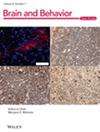Short-Term Effects of Folate Supplementation in Combination With Vitamin B6 for Treating Acute Manic Episodes in Bipolar I Disorder: A Randomized Controlled Trial
Abstract
Background
Drug resistance poses a formidable challenge in managing acute manic episodes in bipolar I disorder, leading to suboptimal treatment outcomes. This study investigates the efficacy of folate and vitamin B6 supplementation as an adjunct to sodium valproate in improving treatment responses for patients experiencing acute mania.
Methods
In a randomized, double-blind, placebo-controlled trial, 43 patients diagnosed with bipolar I disorder presenting with acute manic episodes were enrolled. Participants were randomly assigned to three groups: one receiving folate (5 mg/day) plus vitamin B6 (80 mg/day), a second group receiving folate alone (5 mg/day), and a third group receiving placebo. Evaluations were conducted at baseline and after 3 and 6 weeks using the Mini-Mental State Examination (MMSE) and the Young Mania Rating Scale (YMRS).
Results
All groups demonstrated significant clinical improvements after the treatment period; however, the trends in MMSE scores showed no significant differences (p = 0.068). Notably, the reduction in YMRS scores significantly varied across groups (p < 0.001, effect size = 0.342), with the folate group demonstrating a significantly greater decrease compared to both the folate/B6 (p = 0.003) and placebo groups (p < 0.001). Recovery rates revealed that 80% of patients receiving folate showed over a 50% decrease in YMRS scores after 3 weeks, markedly higher than the other groups (p = 0.001).
Conclusions
Our findings support the short-term use of folate as a beneficial adjunct in treating acute manic episodes in bipolar I disorder. However, the addition of vitamin B6 did not yield additional advantages. These results may inform future treatment guidelines targeting acute mania in bipolar disorder, advocating for folate supplementation as a potential strategy to enhance therapeutic outcomes.


 求助内容:
求助内容: 应助结果提醒方式:
应助结果提醒方式:


